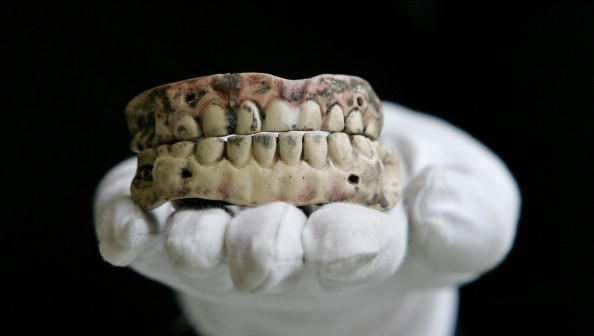
Adding fluoride to the public water supply has been proved to help protect children's teeth from cavities. It appears that fluoridated water also helps older people's teeth as well.
Researchers from the dental school of Trinity College Dublin have found that Irish adults over age 50 who lived where the water had greater amounts of fluoride were more likely to maintain their natural teeth than those who lived where the water had low amounts of fluoride. There were nearly 5,000 participants in the study, which is part of the Irish Longitudinal Study of Aging.
The researchers also looked at bone mineral density in these individuals and found that there was no significant difference between the groups living in areas with low or high amounts of fluoride in the water. This finding was surprising because fluoridated water has been shown to increase bone mass in other studies.
Other factors have an impact on whether an older person has all their teeth, including periodontal disease, trauma, and access to dental care. The study estimated that only about 10% of Irish adults over age 50 have all their natural teeth. If all the households in Ireland had fluoridated water, the proportion of those with all their own teeth would be almost 13%, the researchers said.
Ireland has been adding fluoride to public water supplies in urban areas since 1970. About 85% of the country has fluoridated water, but suburban and rural areas, and areas with private wells often do not. This study used an estimate for the amount of fluoride in water based on where the participants said they lived.
Adding fluoride to public water supplies has been controversial, but many studies have found it to be safe and an excellent was to promote dental health. Fluoridation of water has been called one of the greatest public health achievements of the 20th Century by the U.S. Centers for Disease Control and Prevention. Having healthy teeth has been linked to good overall health in older people.
You can read a summary of the study at http://tilda.tcd.ie/publications/research%20briefs/2015_Research%20Brief_Water%20Fluoridation.pdf.



